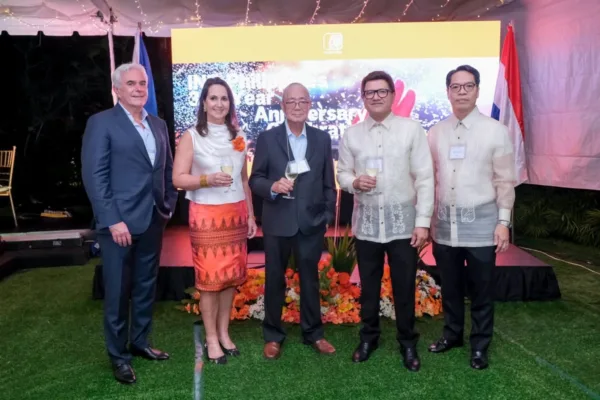by Alexis Tuble, Correspondent
In a bold regulatory move aimed at addressing the growing social and economic toll of online gambling, the Bangko Sentral ng Pilipinas (BSP) has unveiled a draft circular that seeks to strictly regulate online gambling payments by limiting access to digital payment channels and e-wallets used for betting purposes.
The proposed policy comes amid increasing concerns about addiction, rising household debt, and weak consumer safeguards in the country’s rapidly expanding online gambling industry.
BSP tightens online gambling payments to protect Filipino consumers

The BSP’s initiative targets payment service providers (PSPs), electronic money issuers, and digital banks that facilitate transactions for gambling platforms.
At the core of the proposal is the creation of a dedicated Online Gambling Transaction Account (OGTA) — a restricted wallet designed to ensure that Filipinos can only use a limited portion of their funds for gambling.
“We can no longer rely on guesswork,” said a BSP official during a stakeholder briefing. “We must know who is gambling, how often, and how much they’re spending. Financial platforms have a responsibility to protect the public — not profit from addiction.”
Key provisions of the draft circular
- Single gambling wallet rule — users can only maintain one OGTA per payment service provider, funded exclusively from their personal wallet. Transfers from credit lines or third-party accounts are strictly prohibited.
- Spending limits — each gambling wallet is limited to 20% of the user’s average daily balance over the past 30 days—effectively capping how much money a person can gamble online.
- Time restrictions — transactions will only be allowed during a daily 6-hour window, as chosen by the user. A 24-hour “cooling-off period” is also mandatory after hitting usage limits.
- Responsible gambling measures — platforms must introduce tools to help users set voluntary spending and time limits, view their gambling history, and pause access to gambling services at will.
- Provider compliance — PSPs must secure a BSP license specific to gambling transactions, maintain at least ₱300 million in capital, and establish Anti-Money Laundering (AML) and Counter-Terrorism Financing (CTF) compliance units.
- Penalties — non-compliant platforms face suspension or revocation of their license to operate payment systems.
Why online gambling regulation matters in the Philippines

The Philippines is one of Southeast Asia’s biggest online gambling markets. According to the Philippine Amusement and Gaming Corporation (PAGCOR), the online gaming industry generated over ₱60 billion in gross gaming revenues in 2024. But this growth has come at a cost.
A recent survey by Social Weather Stations (SWS) revealed that over 27% of online gamblers reported borrowing money to gamble, with 16% admitting to missing utility or loan payments due to gambling losses.
“Online gambling is a silent epidemic,” said Senator Risa Hontiveros in a recent Senate hearing. “It causes families to break apart and leads individuals into cycles of debt and depression. Financial institutions must not be complicit.”
Fintech Alliance PH, representing GCash, Maya, and other major players, has welcomed the BSP’s effort. “Consumer protection is our shared goal,” said Alliance spokesperson Amor Maclang. “We support responsible fintech innovation that does not exploit vulnerable users.”
The future of online gaming payments in PH

The BSP is accepting stakeholder feedback until July 25, 2025. The final version of the circular is expected by the end of Q3 2025. Once adopted, providers will have six months to fully comply with the new rules.
The BSP’s move signals a shift from permissiveness to proactive consumer protection. By cutting off easy financial access to online gambling, the Philippine central bank is pushing the industry — and the public — toward safer, more sustainable financial behavior.
If successfully implemented, the Philippines may soon become a model for the responsible regulation of digital payments in high-risk sectors — not just in Asia, but globally.








